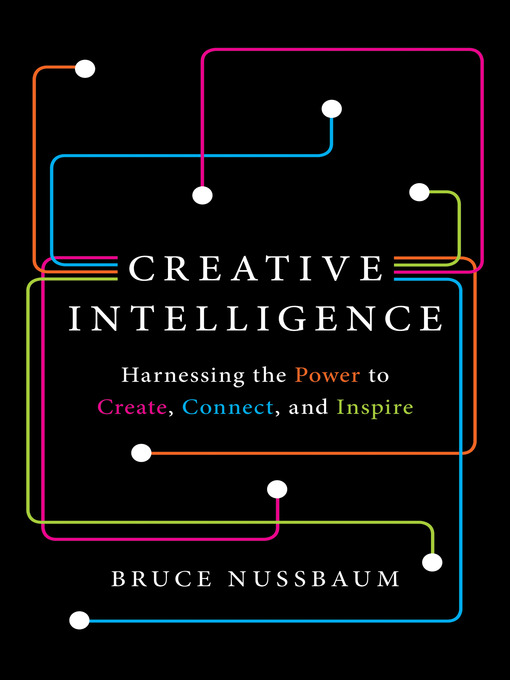
Creative Intelligence
Harnessing the Power to Create, Connect, and Inspire
کتاب های مرتبط
- اطلاعات
- نقد و بررسی
- دیدگاه کاربران
نقد و بررسی

February 4, 2013
In an unstable job market, many of us struggle to keep our skills current and marketable. To that end, Nussbaum, professor at the Parsons School of Design and a former Businessweek editor, brings us both good and bad news. The bad news is that a survey of 1,500 CEOs revealed that the most valuable management skill was no longer marketing or operations but creativity, a new literacy that employees will need to stay competitive. The good news is that these skills can be learned. Nussbaum dedicates much of the book to five practices that help individuals nurture and develop prized creative skills: knowledge mining, framing, playing, making, and pivoting. Latter sections of the book explore the economic value of creativity. The author shows the faulty thinking behind, and consequences of, the triumph of finance over product creation. More importantly, he offers a viable economic model, which suggests that creativity is a source of economic value, entrepreneurs drive growth, capitalism is a social movement, and social networks are the basic building blocks of the economy. This is a refreshing, informative, and groundbreaking new work that has implications for every level of the business arena.

January 15, 2013
Former BusinessWeek assistant managing editor Nussbaum (Innovation and Design/Parson School of Design; Good Intentions: How Big Business and the Medical Establishment Are Corrupting the Fight Against Aids, 1990, etc.) makes the case that the future of American capitalism lies in unleashing creativity. The author believes that students can be trained to become creative and that it is a skill that can be assessed. He combines lessons from the "personal growth movement of the 1960s and '70s" and observations about how successful enterprises harness creativity and team effort (e.g., Google, Apple and Facebook). Nussbaum also proposes supplementing the standard IQ measure with what he calls a creativity quotient. In the author's view, today's dominant model of capitalism, based on the hegemony of "efficient market theory" (which makes short-term profit the main criteria for investment), was responsible for the recent recession and has "taken a devastating toll on innovation." The author compares this to the period from 1933 to 1976, "a time when business leaders were responsible not simply to shareholders, but to many stakeholders." The author believes that in order to compete globally, American business must pick up from the 1990s, when U.S. global hegemony was based on the inventiveness of Silicon Valley and futurists predicted major advances in biotechnology and nanotechnology. He offers a radical model for investment in technology startups based on local sources of financing and the possibilities of broad-based online social networking. Such an economy would embrace risk-taking, see uncertainty as opportunity and require minimal government intervention. Education would be transformed to emphasize hands-on creative activity, and students would be encouraged to wed ideas to their implementation. An intriguing mixture of challenging ideas and Utopian solutions to the broader issues regarding social welfare currently under debate.
COPYRIGHT(2013) Kirkus Reviews, ALL RIGHTS RESERVED.

March 1, 2013
Nussbaum, teacher, journalist, and editor, began covering design and innovation in the 1990s and indicates he and others in the first decade of the twentieth century moved beyond design thinking to explore creativity. Listening to his students prompted him to consider creativity as something you might train for, as a skill that could be accessed. Advising the need for a new way of thinking, communicating, and creating, the author offers Five Competencies of Creative Intelligence, which include Knowledge Mining, or using our own experiences and aspirations to envision new companies and technologies; Framing, or being aware of our own view of the world so that we can compare it to the views of others; and Playing, because Nussbaum suggests a playful mindset leads to a willingness to take risks, explore more options, and navigate through uncertainty without fearing failure. He concludes, The biggest challenge we face is our own fear of creativity . . . . We can all be creative. Thought-provoking insight on the important topic of creativity.(Reprinted with permission of Booklist, copyright 2013, American Library Association.)

























دیدگاه کاربران